“It’s All Greek to Me”: Fiduciary
In this series of blog posts, we define esoteric legal terms and explain how they are used in law.
The word “fiduciary” has many meanings in law, but the Merriam-Webster definition ties together all uses of the word nicely: “of, relating to, or involving a confidence or trust.” Whether the term is applied to a will, a trust, or a power of attorney, it is the duty of the fiduciary to act in the best interest of his/her client, their estate, and their beneficiaries.
When it comes to probate, the fiduciary acts as the “Personal Representative” (a.k.a., “executor”) of the Will – the person in charge of distributing the assets and seeing the probate administration to its completion. The Personal Representative can be compensated for his/her services, known as “costs of administration.”
A trustee of a trust is the person appointed to hold and invest the assets of the trust. The fiduciary agent named under a power of attorney, like the trustee, has powers and responsibilities that go into effect as soon as the documents are signed.



